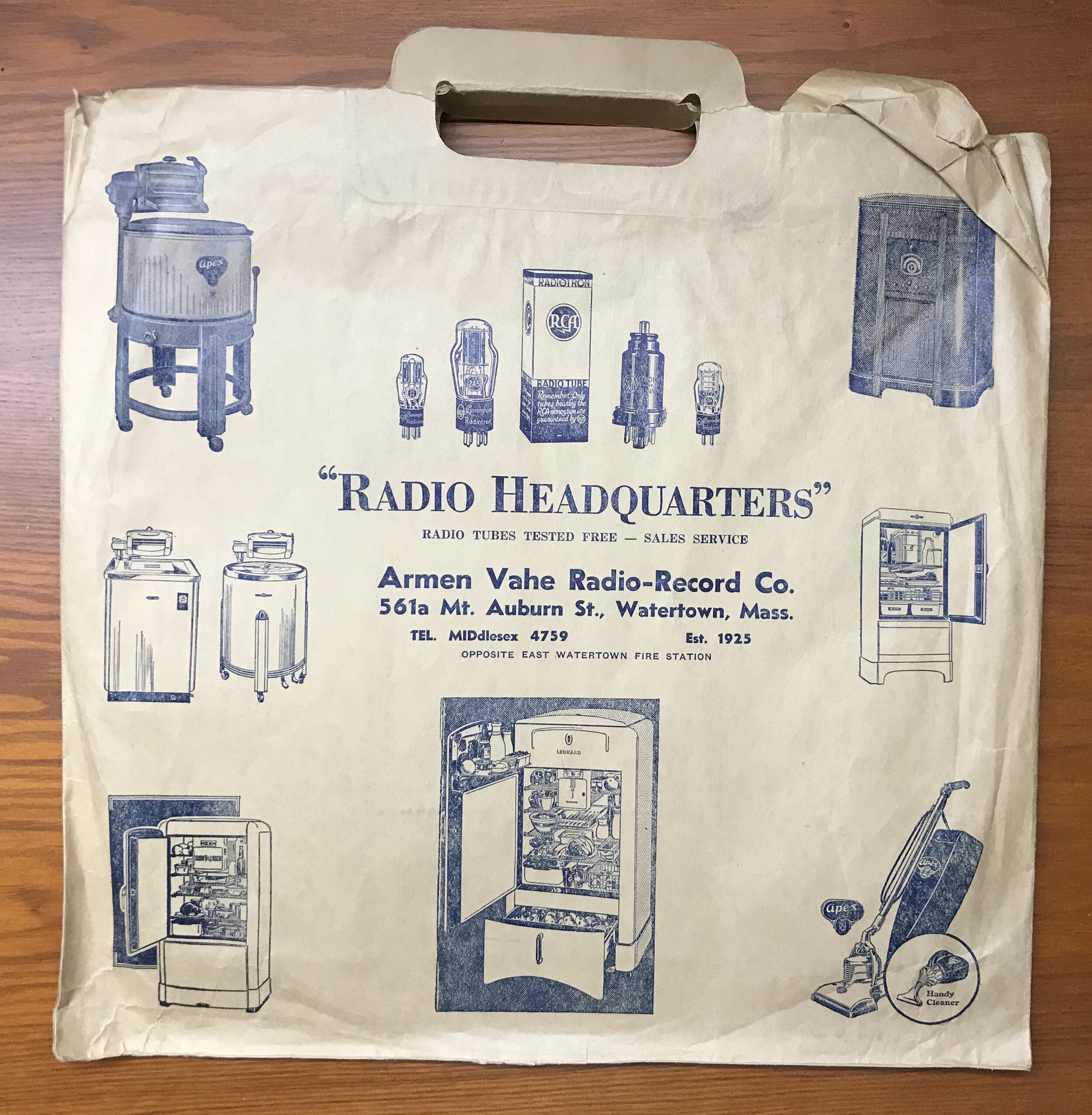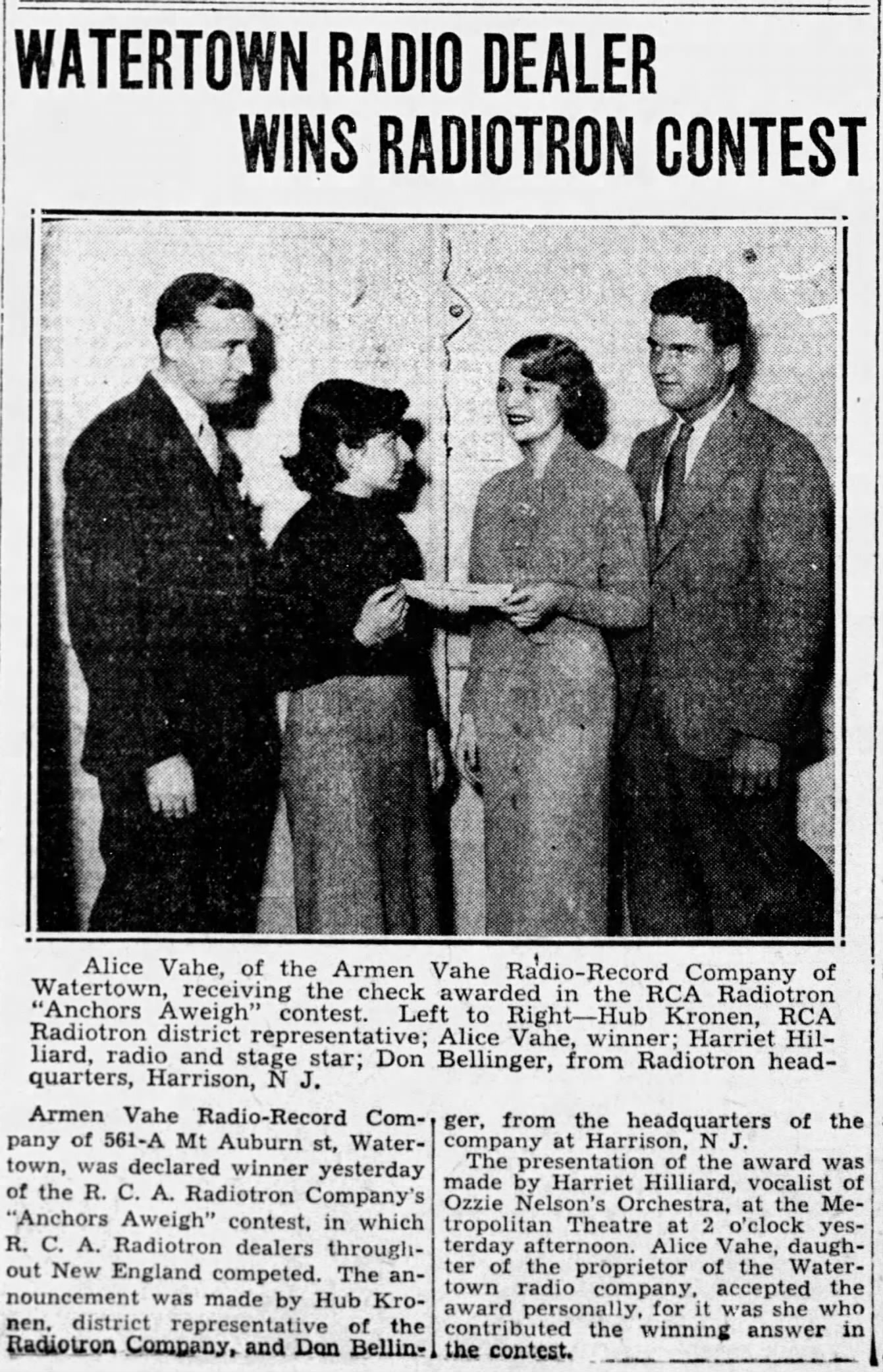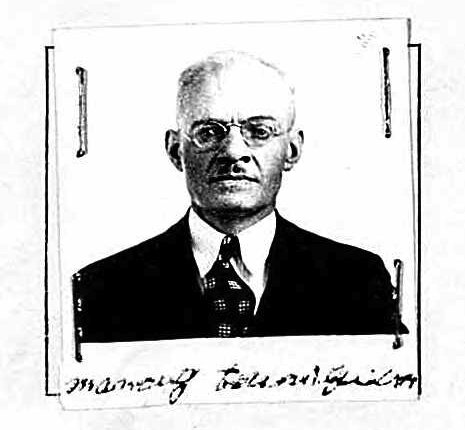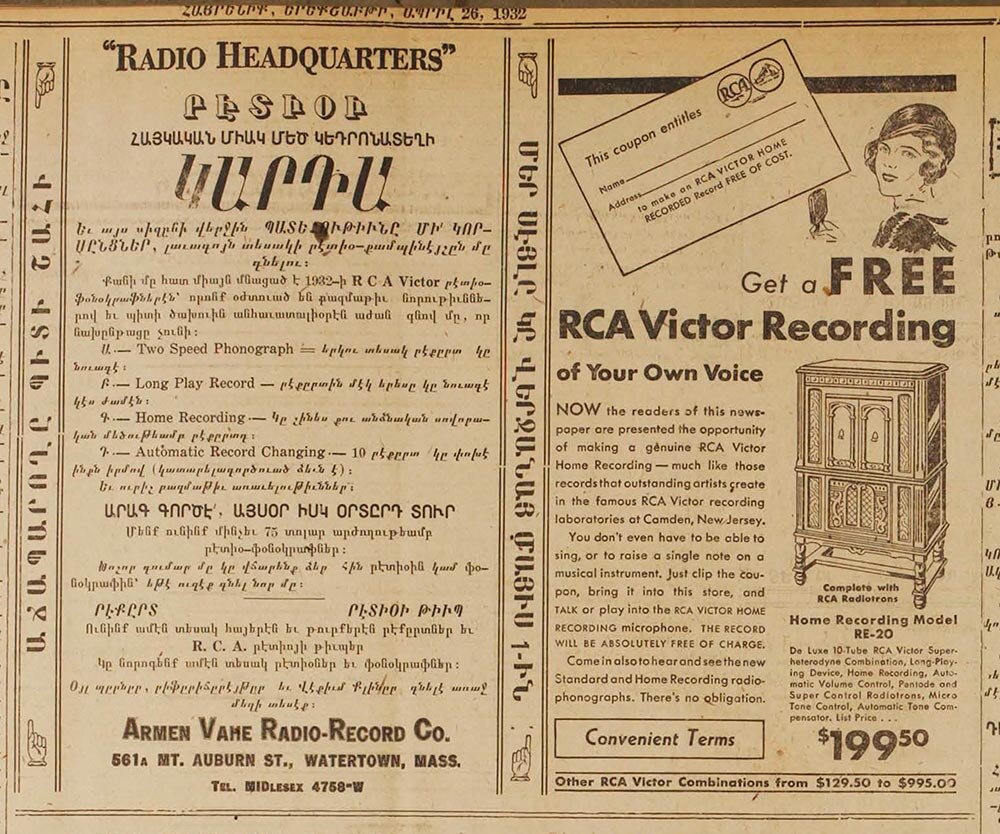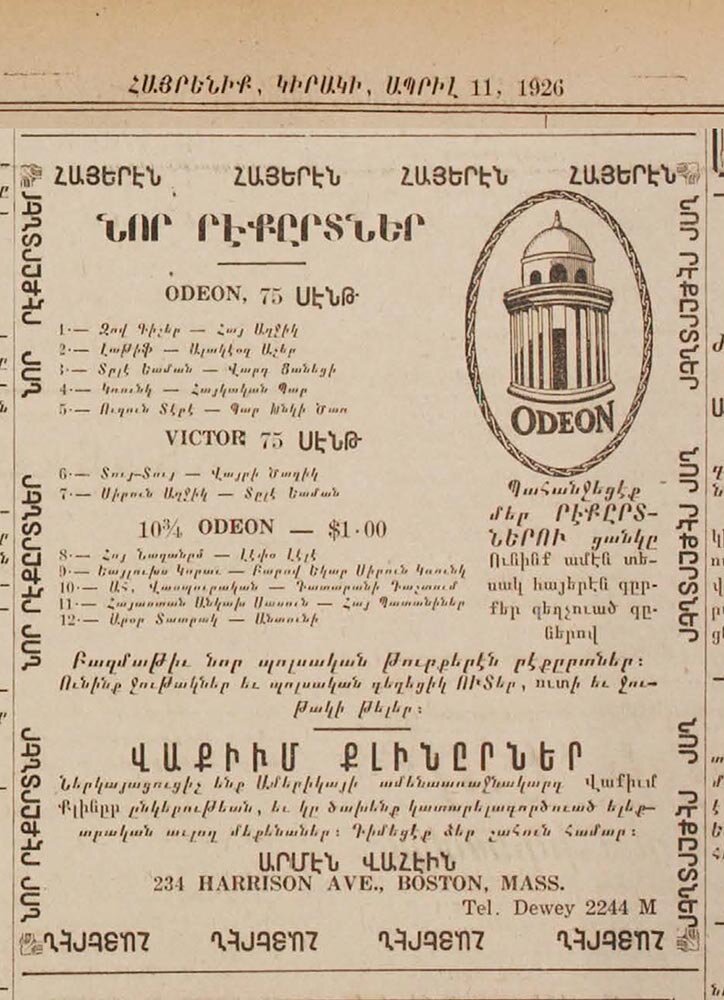Armen Vahe Radio-Record Co
Armen Vahe Radio-Record Co stood across the street from the East Watertown fire station for decades. The store, located at 561A Mt. Auburn Street, was owned and operated by Armen Vahe. Armen was born Kaloust Chboukjian, on April 14, 1890, in Sepastia. He immigrated through Ellis Island in 1920, initially settling on Harrison Ave in Boston. By 1926 he was already selling records out of 234 Harrison Avenue. By 1930, the census finds Armen in Watertown, running his store on Mt. Auburn Street and living on Irma Avenue along with his son Hrach, sister Asdghig Arozian, and her daughter Alice Arozian.¹ Armen was not only a prominent business owner but also an active and engaged civic member in the community. He and his family were members and supporters of the St. Stephen Armenian Church.² By 1924 Armen was serving as the Secretary of the Hairenik Association, going on to become the business manager for the Association by 1944, a post he held into the 1950s.³ (Continue reading below.)
In his store, Armen sold appliances, radios, record players, and, of course, records. The business had a longstanding relationship with the company RCA for whom they provided services such as tube testing for the devices they retailed. RCA also advertised many promotional activities and services at the time, including an ad campaign in 1932 offering customers a chance to make a recording of their own.⁴ Their contract with RCA provided extensive advertising and by 1934 they had won awards from the company as a notable dealer in New England.⁵ The extent of their record sales in the Armenian community throughout New England is attested to by the large portion of discs in the Armenian Museum collection that bear dealer stickers from the store. Through his relationship with RCA, Armen also operated his own record label called “The Orient”. The Museum’s collection holds 30 different releases on the label, though it is likely that this is only a portion of the recordings they published. Many of the records pressed by the label were reissues of popular music made for RCA, and though these records sold well, they were not the recordings behind which Armen put his more personal and community-minded energy.
Unique among the output of the label are several recordings featuring an ensemble of performers from around New England. The group was led by the Providence-based violinist Manoug Toumigian, with accompaniment by clarinetist Toros Tatarian and oudist Krikor Ohanian. Manoug Toumigian was from Kharpert province, born in the village of Hussenig, in March of 1892. He arrived in New York on November 5, 1920, and settled in Providence, Rhode Island.⁶ Similarly, Toros Tatarian was born in Huseenig in May of 1905 and arrived in New York in April of 1920; he too settled in Providence where he worked as a stone setter.⁷ It is most likely that Krikor Ohanian was in fact George Ohan, a Worcester, Massachusets Oudist also from Kharpert and a popular performer in the New England area. Naturally, many of the songs this ensemble performed represented the folk style of their homeland, Kharpert, including the solo violin piece “Laouk,” featured here. This particular tune was previously recorded by the Kharpertsi violinist Vartan Margosian in the 1920s, and later by zurna player Hovsep Bedrosian of Fresno, California in 1940.⁸
In these first several decades of the 20th century, independent recordings such as these played an important role in documenting the musical traditions of the homelands these artists were forced to leave behind. Their commitment to producing independent works that represented their culture was matched with their ability to set down new roots and build community in their new home. From these two qualities, entrepreneurs like Armen Vahe were able to create not only longstanding and successful businesses but also serve as community centers and resources. While Armen passed away on December 5, 1976,⁹ his son Hrach (who later went by the name Armen Vahe as well) and daughter-in-law Arpi (Odian) Vahe kept the store operating into the 1980s. The store changed location a few times throughout the years but always within the same block on Mt. Auburn St.¹⁰ With over fifty years of operation, the impact of the store lives on today through the legacy of the recorded music they brought to the community.
End Notes.
1. U.S. Census Bureau.1930; Census Place: Watertown, Middlesex, Massachusetts; p. 28A; Enumeration District: 0517; FHL microfilm: 2340666
National Archives and Records Administration (NARA); Washington, D.C.; Index to Naturalization Petitions and Records of the U.S. District Court, 1906-1966, and the U.S. Circuit Court, 1906-1911, for the District of Massachusetts; Microfilm Serial: M1545; Microfilm Roll: 110
The National Archives at St. Louis; St. Louis, Missouri; World War II Draft Cards (Fourth Registration) for the State of Massachusetts; Record Group Title: Records of the Selective Service System; Record Group Number: 147; Series Number: M2090
Boston, Massachusetts, City Directory, 1923, p.1201
2. “Armen Vahe Obituary.” The Boston Globe (Boston, MA), Tuesday, December 7, 1976; p.14
3. Statement of Ownership of Hairenik Daily, Hairenik Weekly, January 11, 1924
Statement of Ownership of Hairenik Daily, Hairenik Weekly, November 1, 1944
Statement of Ownership of Hairenik Daily, Hairenik Weekly, October 25, 1952
4. “Record your own voice” RCA advertisement, Hairenik Weekly, April 26, 1932.
5. “Watertown Radio Dealer Wins Radiotron Contest”, Boston Globe, September 14, 1934
6. National Archives at Boston; Waltham, Massachusetts; ARC Title: Petitions and Records of Naturalization, 2/1842 - ca. 1991; NAI Number: 3432872; Record Group Title: Records of District Courts of the United States, 1685-2009; Record Group Number: RG 21
7. National Archives at Boston; Waltham, Massachusetts; ARC Title: Petitions and Records of Naturalization, 2/1842 - ca. 1991; NAI Number: 3432872; Record Group Title: Records of District Courts of the United States, 1685-2009; Record Group Number: RG 21
8. Harry Kezelian, private correspondence, February 9, 2020
9.“Armen Vahe Obituary.” The Boston Globe (Boston, MA), Tuesday, December 7, 1976; p.14
10. Vahe, Karen. Facebook. Accessed April 6, 2021. https://www.facebook.com/photo?fbid=5916905421668333&set=gm.4585985678095140.
A special thanks to Jesse Kenas-Collins for his digitization, writing, and research, and to Harry Kezelian and Harout Arakelian whose ongoing contributions of research and consultation have been critical to assembling the writings presented here.

